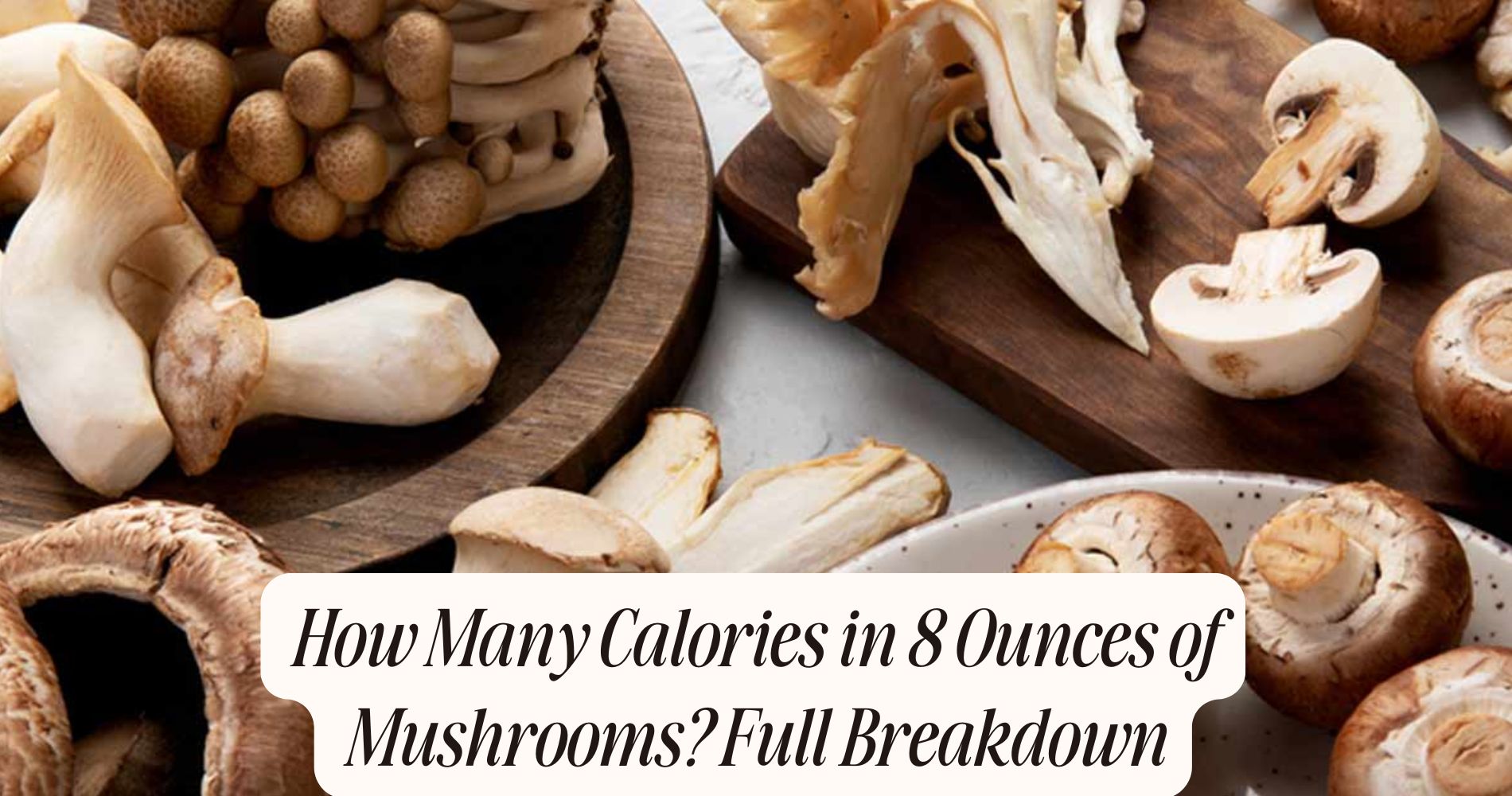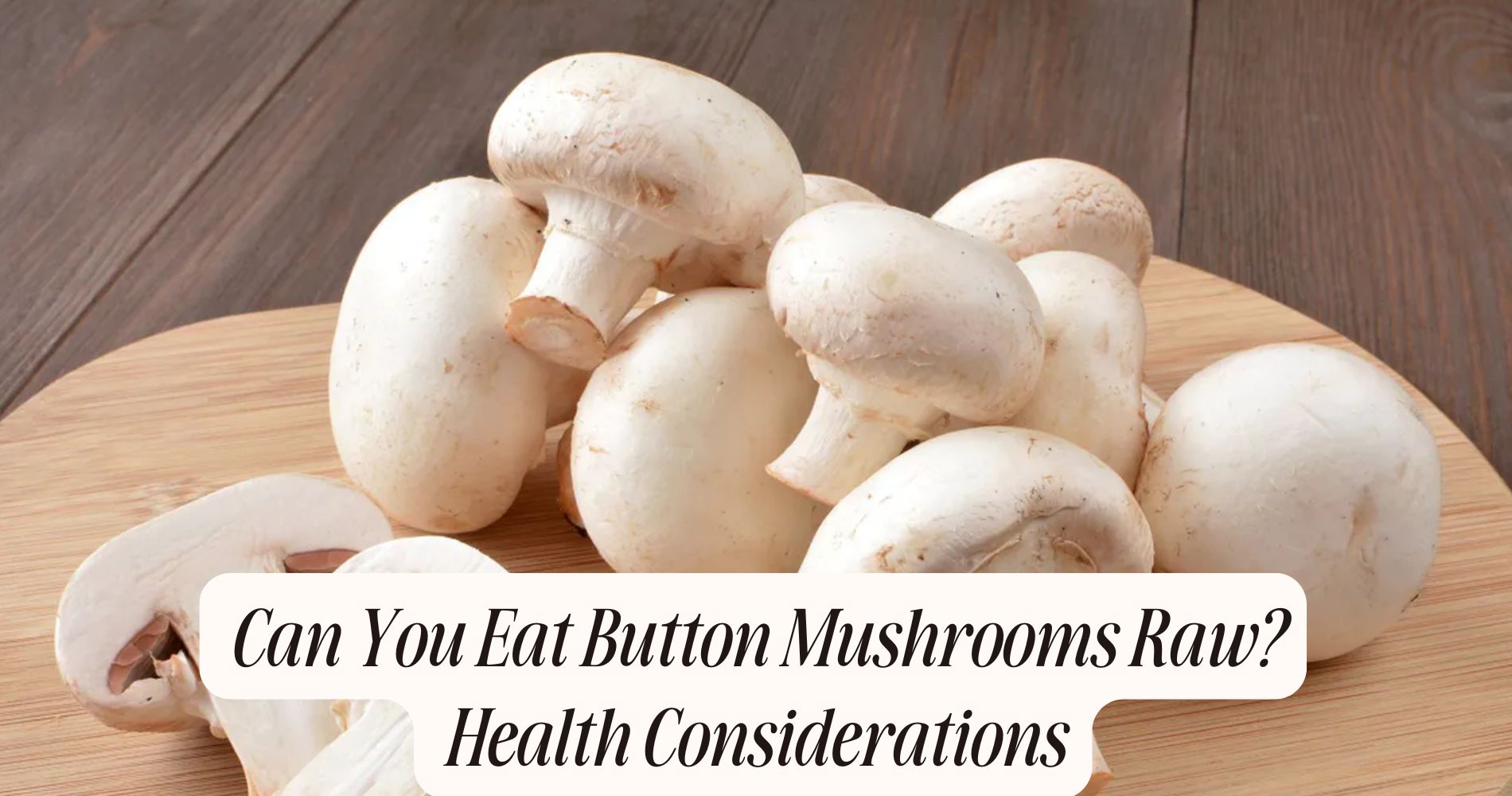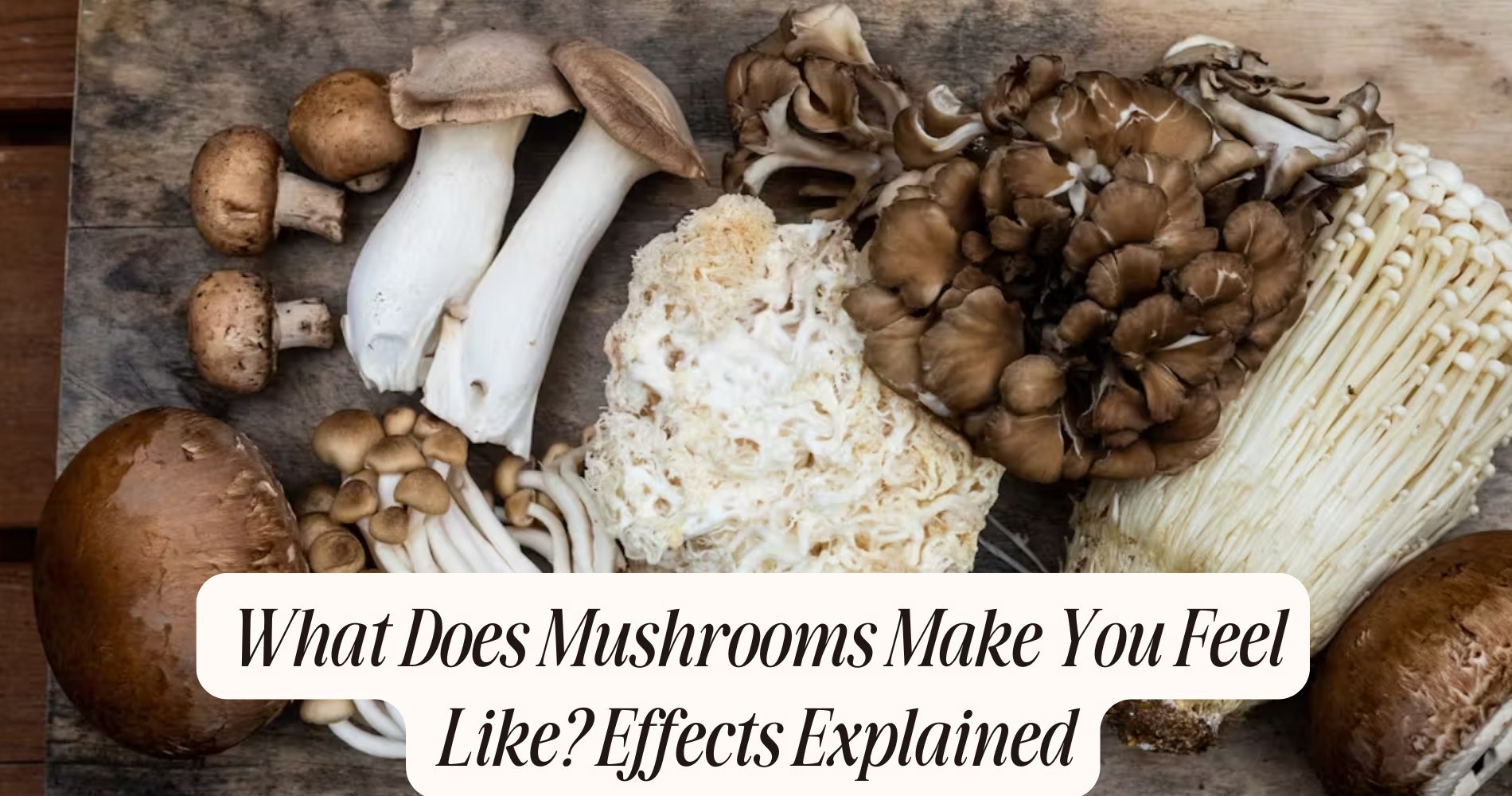
How Many Calories in 8 Ounces of Mushrooms? Full Breakdown
How many calories in 8 ounces of mushrooms? In 8 ounces of mushrooms, you'll find about 50 calories, making them a fantastic low-calorie option for your meals. Whether you choose white button, cremini, or shiitake, the caloric content remains similar across varieties. Their lightness makes them perfect for various eating plans, including vegetarian and low-carb diets. The way you cook them affects their calorie count—steaming or roasting keeps them low-cal, while frying ups the calories. Mushrooms also pack a punch with B vitamins and antioxidants, enhancing your overall nutrition. Stick around to discover even more about incorporating these nutritious gems into your diet!
Nutritional Overview of Mushrooms
What makes mushrooms such a nutritious addition to your diet? Mushrooms are packed with essential nutrients, making them a great choice for anyone looking to boost their health.
With various mushroom varieties—like shiitake, portobello, and cremini—you'll find not only unique flavors but also a wide range of vitamins and minerals. They're particularly high in B vitamins, which help with energy metabolism, and provide important antioxidants to support your immune system.
In addition to their nutrient profile, mushrooms are low in calories and fat, making them an excellent substitute in many dishes. You can use them in countless culinary uses; throw them into stir-fries, soups, or salads for added texture and flavor.

They're also perfect for grilling or roasting, allowing their natural umami taste to shine.
Moreover, mushrooms contain dietary fiber, which promotes digestive health and can keep you feeling full longer.
By incorporating various mushroom varieties into your meals, you'll not only enhance the taste but also enrich your diet with beneficial nutrients that support overall well-being.
Caloric Content in 8 Ounces
When you look at the caloric content in 8 ounces of mushrooms, you'll find that different types can vary greatly.
Understanding the nutritional value of the mushrooms you choose can help you make healthier meal decisions.
Let's explore how the variety of mushrooms impacts their calorie count.
Nutritional Value Overview
Eight ounces of mushrooms typically contain around 50 calories, making them a low-calorie food choice that can easily fit into various diets. This nutritional profile allows you to enjoy a generous serving without worrying about calorie overload.
Different mushroom varieties, such as white, cremini, or shiitake, offer unique flavors and textures, but their caloric content remains fairly consistent across the board.
When you consider cooking techniques, mushrooms can be sautéed, grilled, or roasted, each method enhancing their flavor while keeping calories low. For instance, sautéing them in a small amount of olive oil can elevate their taste without adding significant calories.
You can incorporate mushrooms into salads, stir-fries, or as a meat substitute in various dishes, all while maintaining a healthy caloric intake.
Mushrooms also provide essential nutrients, including vitamins and minerals, making them a smart addition to any meal. Their versatility means you can easily adapt them to suit your dietary preferences, whether you're following a vegetarian, vegan, or low-carb diet.
Types of Mushrooms
Exploring the various types of mushrooms reveals that their caloric content in 8 ounces remains relatively low across most varieties. Edible varieties such as white button, cremini, and shiitake typically contain around 40-60 calories. These mushrooms are popular in many culinary uses, adding depth to dishes without greatly increasing caloric intake.
When considering mushroom types, don't overlook wild mushrooms like chanterelles or morels, which often have unique flavor profiles and can elevate your meals. However, be cautious with wild mushrooms, as not all are safe to eat.
Mushroom classifications also include those with notable medicinal properties, like reishi and turkey tail, which have been valued for their health benefits. While these may not be your everyday cooking mushrooms, they highlight the diverse applications of fungi in your diet.

Remember that seasonal availability can affect the types of mushrooms you find in your local market, so keep an eye out for fresh options. Incorporating different edible varieties into your meals can enhance nutrition while keeping calories low, making mushrooms a fantastic addition to your kitchen.
Comparison With Other Vegetables
When you compare mushrooms to other vegetables, you'll notice some interesting differences in nutritional value and caloric density.
While mushrooms are low in calories, many other veggies pack more nutrients per ounce.
Understanding these comparisons can help you make better choices for your diet.
Nutritional Value Comparison
Mushrooms stand out among vegetables not just for their unique flavor but also for their impressive nutritional profile. When you compare different mushroom varieties, like shiitake, portobello, and button mushrooms, you'll notice a range of nutrient profiles that offer distinct health benefits. For instance, shiitake mushrooms are particularly high in B vitamins and antioxidants, while portobellos provide a substantial amount of potassium.
In terms of calories, mushrooms are generally low, making them a great choice if you're looking to maintain or lose weight. They pack a punch with essential nutrients while keeping calorie counts in check. Compared to other vegetables, such as broccoli or spinach, mushrooms provide a unique combination of fiber and protein, which can help you feel fuller for longer.
Moreover, the versatility of mushrooms allows you to incorporate them into various dishes without overwhelming the overall caloric content. Whether you're adding them to salads, stir-fries, or soups, their rich umami flavor enhances your meals.
Caloric Density Analysis
Many vegetables vary considerably in their caloric density, making some better choices for weight management than others. Mushrooms, for instance, have a low caloric density, with just about 30 calories per 8 ounces. In comparison, starchy vegetables like corn or potatoes can pack over 100 calories for the same serving size. This difference is essential when considering dietary implications, especially if you're trying to lose weight or maintain a healthy lifestyle.

When you choose low-calorie-density foods like mushrooms, you can fill your plate with larger portions while keeping your calorie intake in check. This means you can enjoy a satisfying meal without overindulging. On the other hand, high-caloric-density vegetables might leave you feeling hungry sooner, leading to potential overeating.
Incorporating a variety of vegetables into your diet not only boosts nutrient intake but also helps you manage your caloric consumption effectively.
Health Benefits of Mushrooms
Incorporating mushrooms into your diet can greatly enhance your overall well-being. These versatile fungi are packed with nutrients and offer a variety of health benefits that you shouldn't overlook.
For starters, mushrooms are known for their immune support capabilities. They contain beta-glucans, which help activate your immune system, making it more effective at warding off illnesses.
Additionally, mushrooms boast impressive antioxidant properties. Antioxidants are vital for protecting your cells from oxidative stress and free radical damage, which can lead to chronic diseases. By regularly consuming mushrooms, you're giving your body the tools it needs to combat inflammation and promote overall health.
Mushrooms also provide essential vitamins and minerals, such as vitamin D, B vitamins, selenium, and potassium. This nutrient density contributes to better energy levels and improved metabolic function.
Plus, they're low in calories, making them an excellent choice for those looking to maintain or lose weight without sacrificing flavor.
Cooking Methods and Calorie Changes
When you cook mushrooms, the method you choose can considerably alter their calorie content and nutritional profile.
For example, sautéing mushrooms typically involves using oil, which can increase the calorie count due to the sautéing effects. On the other hand, roasting mushrooms can enhance their flavor while causing a slight reduction in moisture, impacting their overall calorie density.
Grilling variations also play a role; grilling mushrooms often requires minimal oil, helping keep the calorie content lower.
Steaming benefits include retaining most of the nutrients without adding extra calories, making it a great option if you're watching your intake.
Frying mushrooms, however, tends to ramp up the calorie count considerably due to the frying calories from the oil absorbed during cooking.
Baking changes the texture and flavor but usually keeps the calorie count moderate, especially if you use less fat.
Dehydration effects are interesting as well; when mushrooms lose water content, their calorie density increases, so portion control is essential.
Finally, boiling differences usually result in minimal calorie change, but you might lose some nutrients in the water.
Choose your cooking method wisely to manage calories effectively!
Incorporating Mushrooms Into Your Diet
Mushrooms can be a fantastic addition to your meals, boosting both flavor and nutrition without piling on calories. Their dietary versatility makes them easy to incorporate into a variety of dishes. You can toss them into salads for a fresh crunch, blend them into soups for added depth, or sauté them as a side dish to complement your main course.
When you explore different mushroom recipes, you'll discover endless possibilities. Try adding sautéed mushrooms to omelets, pasta, or grain bowls. You can also use them as a meat substitute in tacos or burgers, thanks to their hearty texture. Grilled or roasted mushrooms can add a savory element to your vegetable medley, too.

Don't forget about the convenience of incorporating mushrooms into stir-fries or casseroles; they absorb flavors beautifully and contribute to a satisfying meal.
Even simple dishes like mushroom risotto or stuffed mushrooms can become family favorites.
With their low-calorie count and rich umami flavor, mushrooms allow you to experiment in the kitchen while maintaining a balanced diet. So, get creative and enjoy the myriad of ways to enhance your meals with mushrooms!
Summary of Mushroom Nutrition
Delving into mushroom nutrition reveals a treasure trove of health benefits packed into these versatile fungi. Different mushroom varieties, such as button, shiitake, and portobello, each offer unique nutritional profiles.
Generally low in calories, mushrooms are rich in essential vitamins and minerals, particularly B vitamins like riboflavin and niacin, which support energy metabolism. They also provide a good dose of antioxidants, helping to combat oxidative stress in your body.
Moreover, mushrooms are an excellent source of dietary fiber, promoting digestive health and keeping you feeling full longer. When you incorporate various cooking techniques, like sautéing, roasting, or grilling, you can enhance their flavor while retaining their nutritional benefits.
Additionally, mushrooms are low in fat and cholesterol-free, making them a great choice for heart-healthy meals.
As you explore different mushroom varieties and experiment with cooking techniques, you'll not only elevate your dishes but also boost your overall health. So, whether you add them to salads, stir-fries, or pasta, mushrooms can be a delicious and nutritious addition to your diet.
Get Mushroom Nutrition Without Counting Calories: Well Gummies SUPER MUSHROOM GUMMIES
Curious how many calories in 8 ounces of mushrooms? Skip the calorie counting and enjoy the powerful benefits of mushrooms with Well Gummies SUPER MUSHROOM GUMMIES. Each vegan-friendly gummy contains a blend of ten functional mushrooms designed to fuel your brain, boost energy, and strengthen your immune system—all in a convenient, low-calorie gum chew form.
Flavored with fresh wild berries, they’re as tasty as your favorite candy but without the jitters or crashes. Make wellness simple, delicious, and effective with Well Gummies today!
Frequently Asked Questions
Are Mushrooms Considered a Low-Carb Food Option?
Yes, mushrooms are a low-carb food option. Their mushroom nutrition offers numerous low-carb benefits, making them a great choice for meals. You can enjoy their flavor while keeping your carb intake in check.
Can Mushrooms Cause Allergic Reactions in Some Individuals?
Yes, mushrooms can cause allergic reactions in some individuals. You should watch for symptoms like itching, hives, or gastrointestinal distress. Proper symptoms identification is essential for managing mushroom allergies and ensuring your safety.
How Do Different Mushroom Varieties Affect Calorie Content?
Different mushroom varieties can markedly affect calorie content. When you do a calorie comparison, you'll find that some, like shiitake or portobello, have more calories than others, like white or cremini mushrooms. Choose wisely!
Are There Any Toxic Mushrooms to Avoid?
When foraging, you should prioritize mushroom identification to avoid toxic species. Always research and consult experts before consuming unfamiliar mushrooms, as some can be deadly. Safety first guarantees you enjoy your culinary adventures without harm.
Do Mushrooms Provide Significant Protein Compared to Other Vegetables?
Mushrooms offer some protein, but in a vegetable comparison, they're not the highest source. While they contribute to your intake, you might want to combine them with other protein-rich foods for a balanced diet.
Conclusion
To sum up, 8 ounces of mushrooms contain about 50 calories, making them a low-calorie addition to any meal. Their nutritional benefits, combined with their versatility in cooking, make them a fantastic choice for a healthy diet. Whether you sauté, grill, or add them to soups, mushrooms can enhance flavor without adding many calories. So go ahead and incorporate these tasty fungi into your meals for a nutritious boost!




